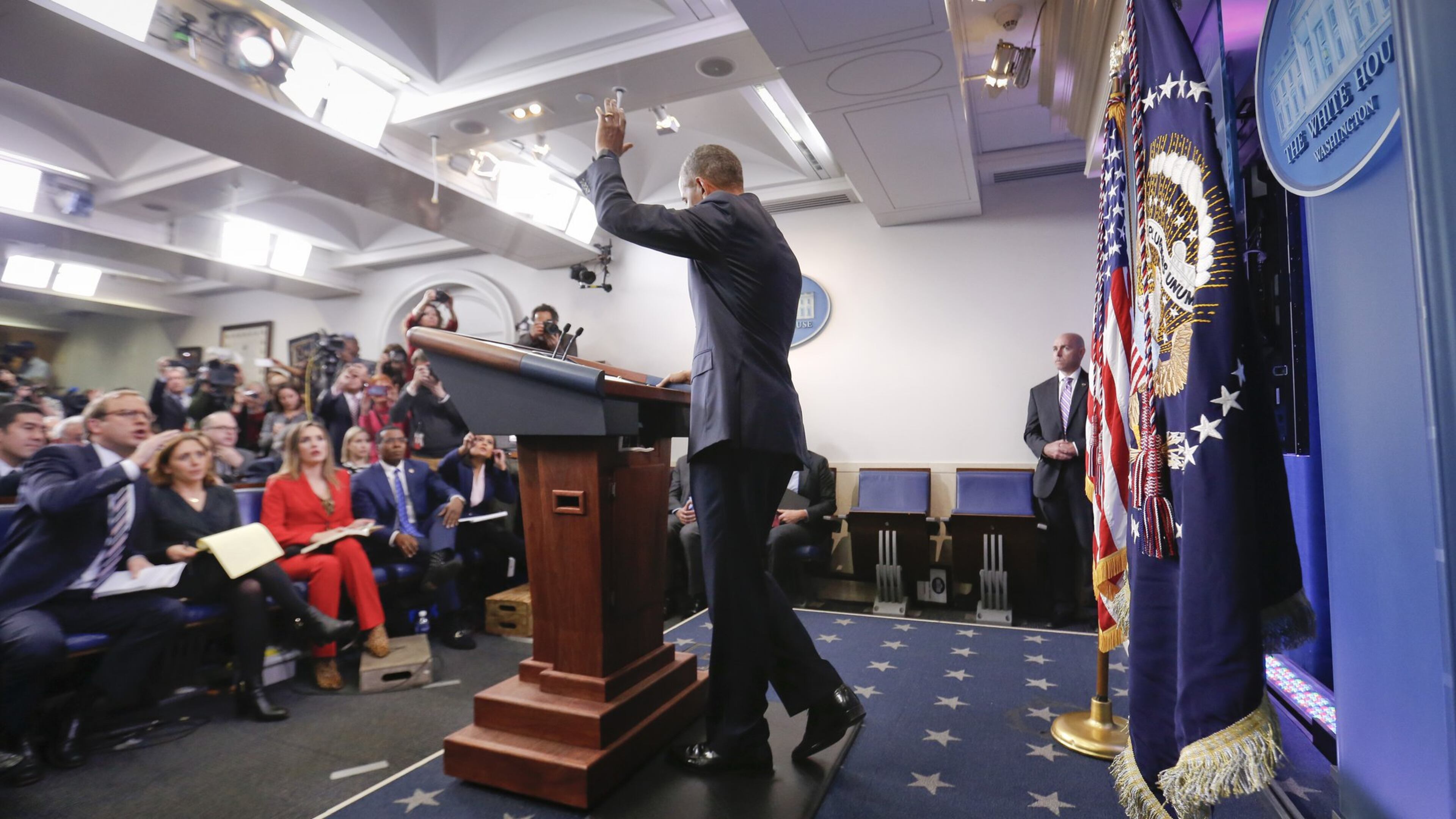Rekha Basu: Obama let us in; Trump is anyone’s guess

Nearly 10 years ago, Barack Obama sat down with a group of Des Moines Register writers and editors to pitch his credentials for the Democratic nomination for president. It was June 18, 2007, and Obama was a first-term U.S. senator from Illinois. His demeanor was youthful, and his closely cropped hair was black, both underscoring his relative lack of experience. But it was another prominent feature he mocked in himself when introduced to Register cartoonist Brian Duffy: His ears. “Oh no,” he said, shaking his head in jest. “Ohhhh no.”
It was an endearing moment, one of many I’ve experienced over the 25 years I’ve been attending Register endorsement interviews. George W. Bush showed the same quality eight years earlier, “instantly disarm(ing) a bunch of old skeptics,” as I wrote. “He was funny and familiar, a man who didn’t take himself too seriously, was confident enough to be self-deprecating and to respond good-naturedly to challenges.”
That day, Obama emphasized that he’d bring good judgment to the table and avoid miscues like Bush’s invasion of Iraq. He framed a vision of an America of equal opportunity and upward mobility, respected for its values and ideals, not just its military might.
He made decisions, he said, after surrounding himself with bright minds on all sides of an issue and hearing them all before taking action.
Reading back over my notes from that interview, I’m struck both by all he got done and by how much we took for granted in those days about how a White House culture should be. On health care, for example, Obama spoke of the need for reforms in which “insurers and drug companies should have a seat at the table but not be able to buy a chair.”
This week, Obama leaves office, eight years older and grayer, his idealism no doubt tempered by the harsher realities of politics. He hadn’t anticipated how vigorously Congressional Republicans would resist him, even openly wishing for him to fail. He didn’t predict how his name and race would be used to undermine him. But whatever his miscalculations, Obama never lost his oratory and ability to inspire, his diplomatic skills or his abiding belief in the power of people to drive needed change.
The question now is, for all the intemperate pronouncements, what will we get in a President Trump? How does a people-powered presidency give way to a go-it-alone one, in which no one else is trusted but family, who are elevated to top positions of power. Russian infiltration in elections is tolerated, even invited, and every slight provokes a showdown on Twitter. How much do we really know about his personality? Does he have a sense of humor? Does he show affection to his children and grandchildren? Is he capable of laughing at himself? Who or what inspires him beyond his business dealings? What does he struggle with internally? All I know is that in my 25 years of meeting candidates for the Register, I have never felt I knew less about an incoming president. That has been deliberate on Trump’s part, by categorically shutting the press out.
The pessimist in me says this bodes badly for what’s to come. The optimist says he can only surprise us for the better. The activist says it’s really not about him; it’s about us as citizens demanding the government we deserve.


